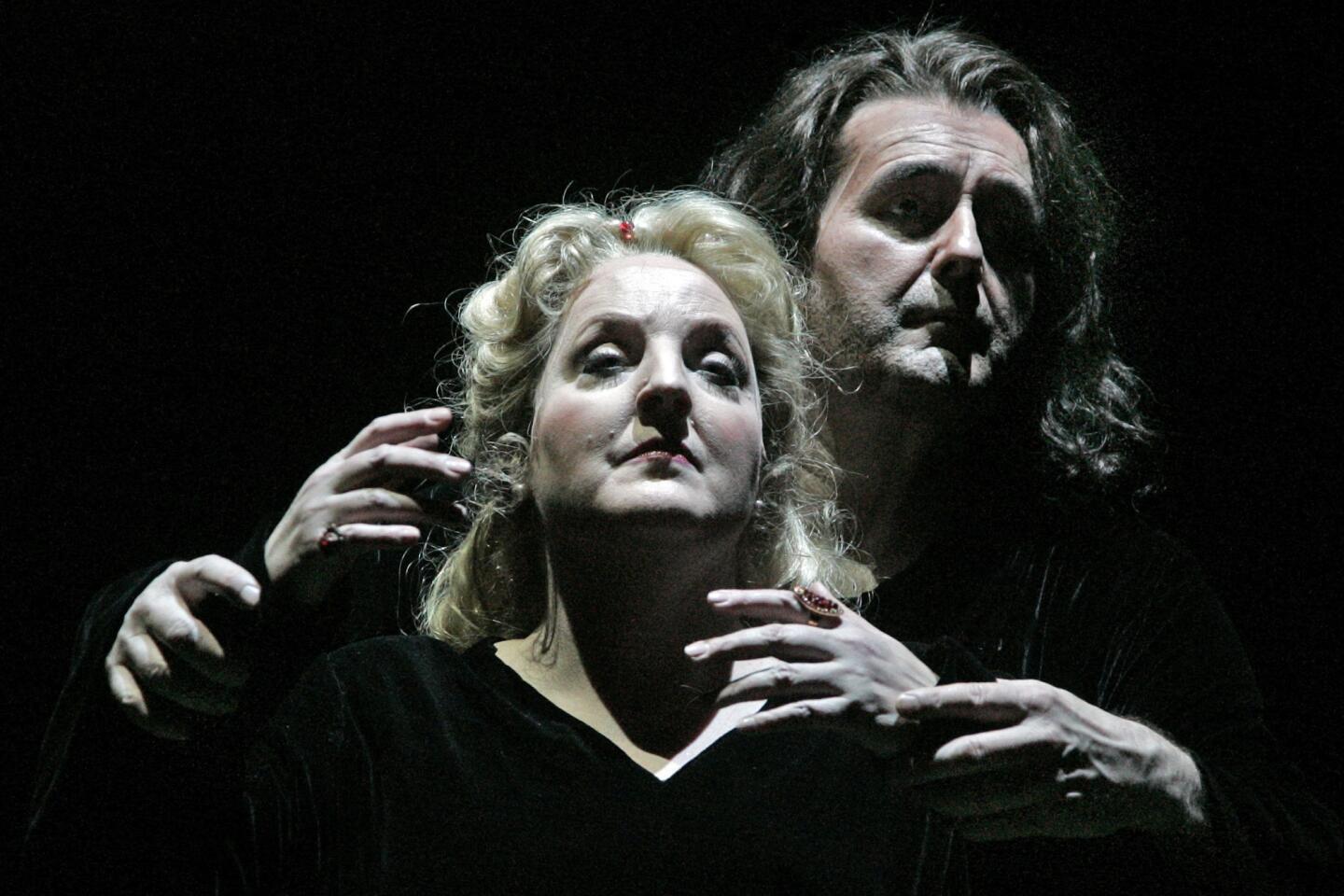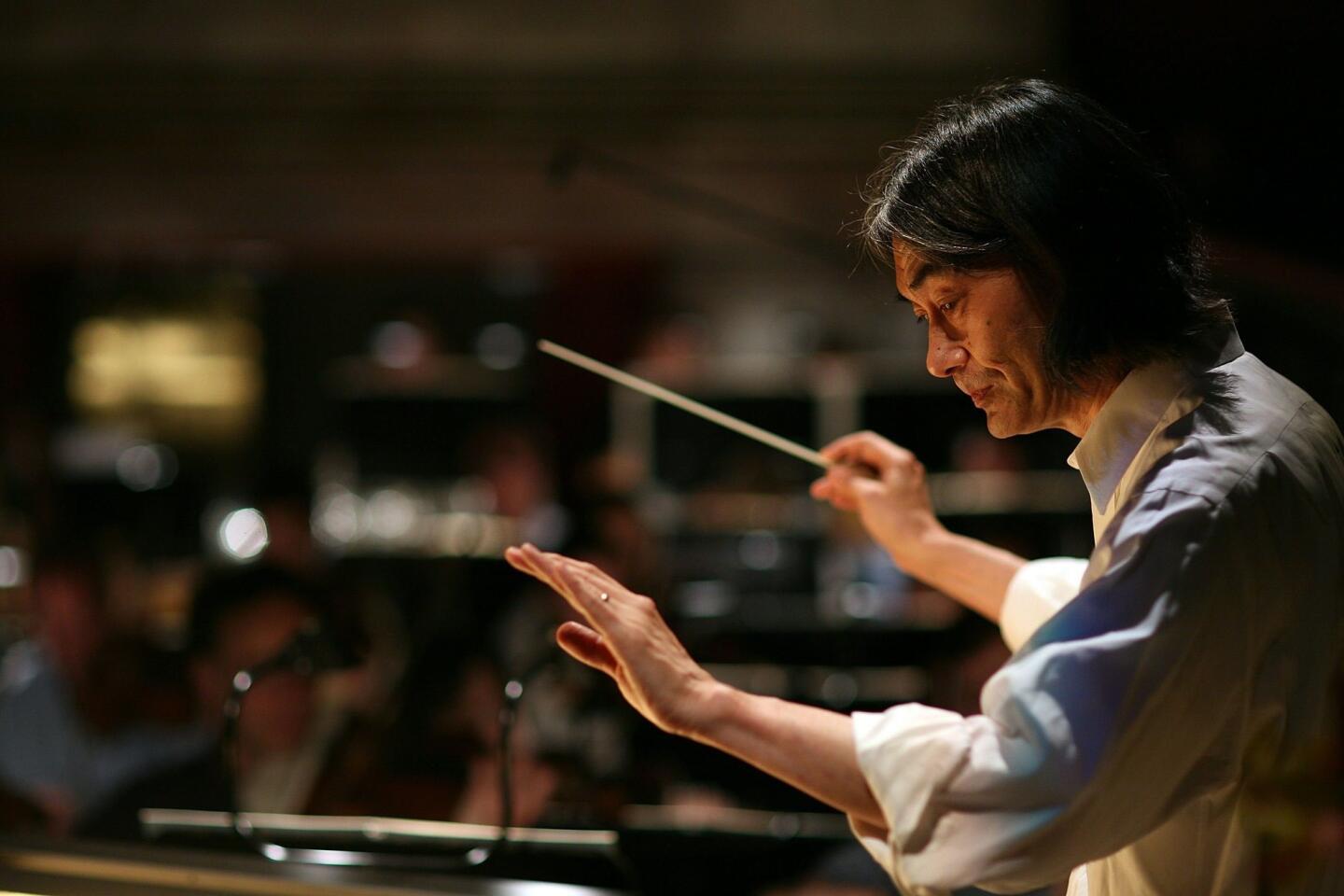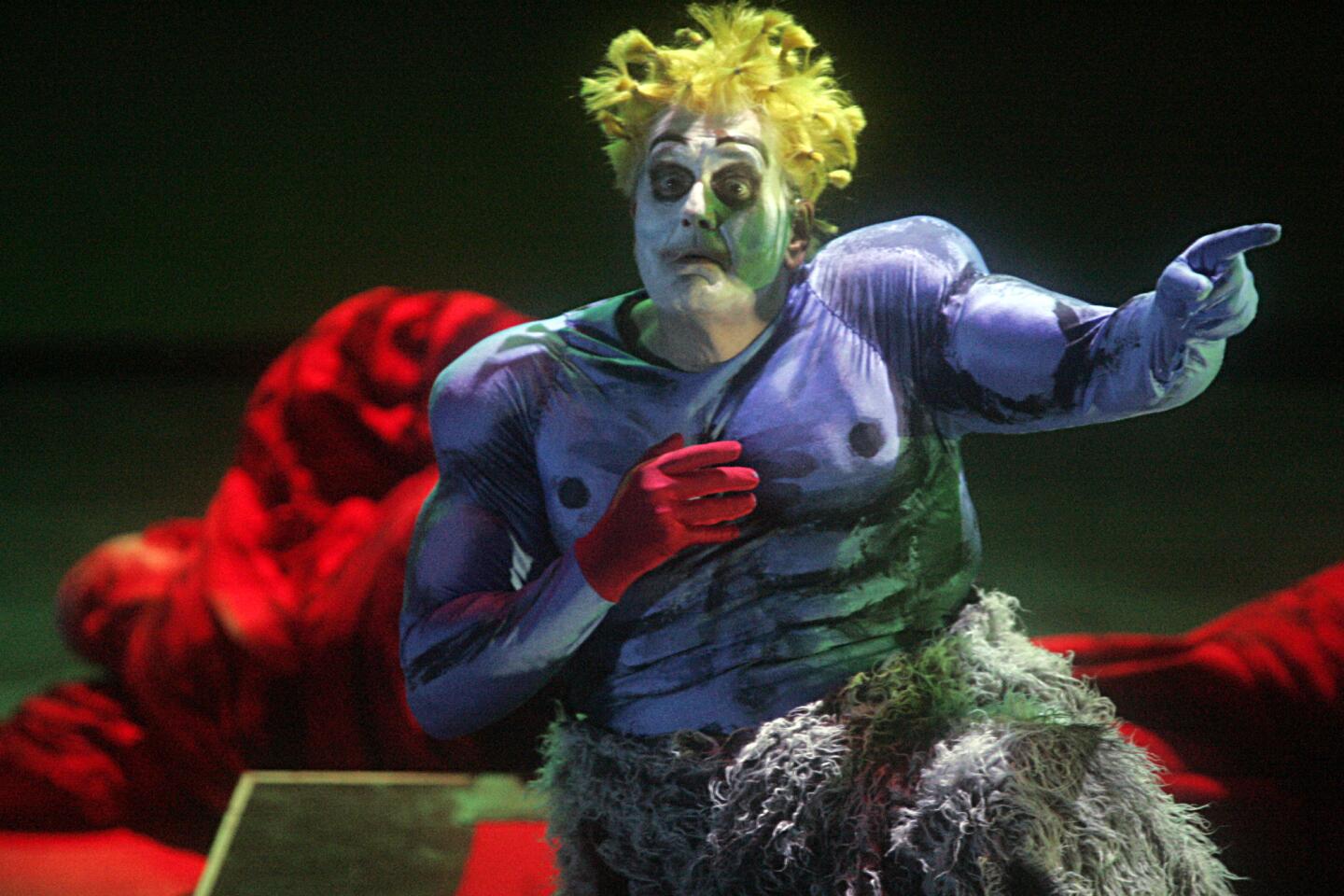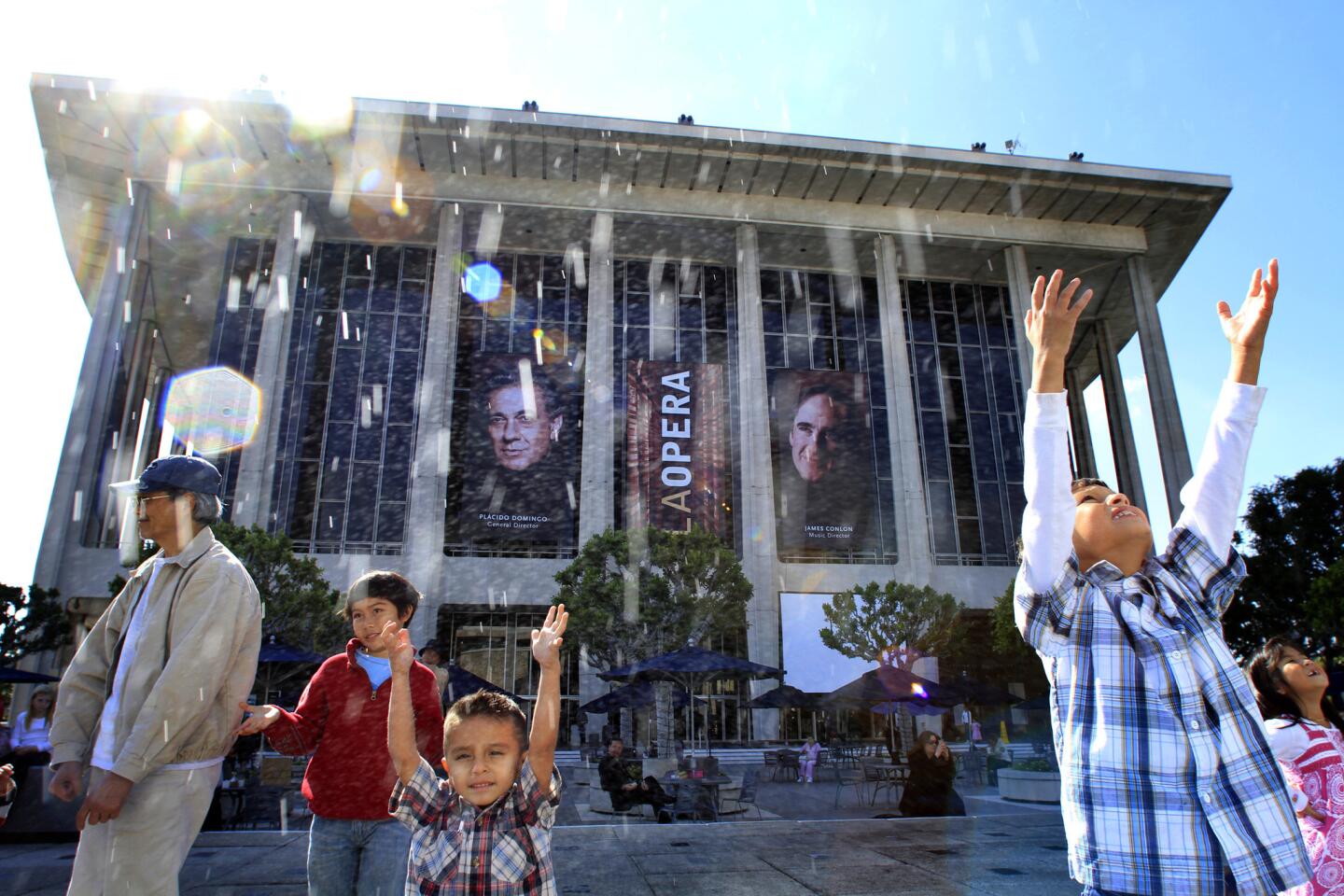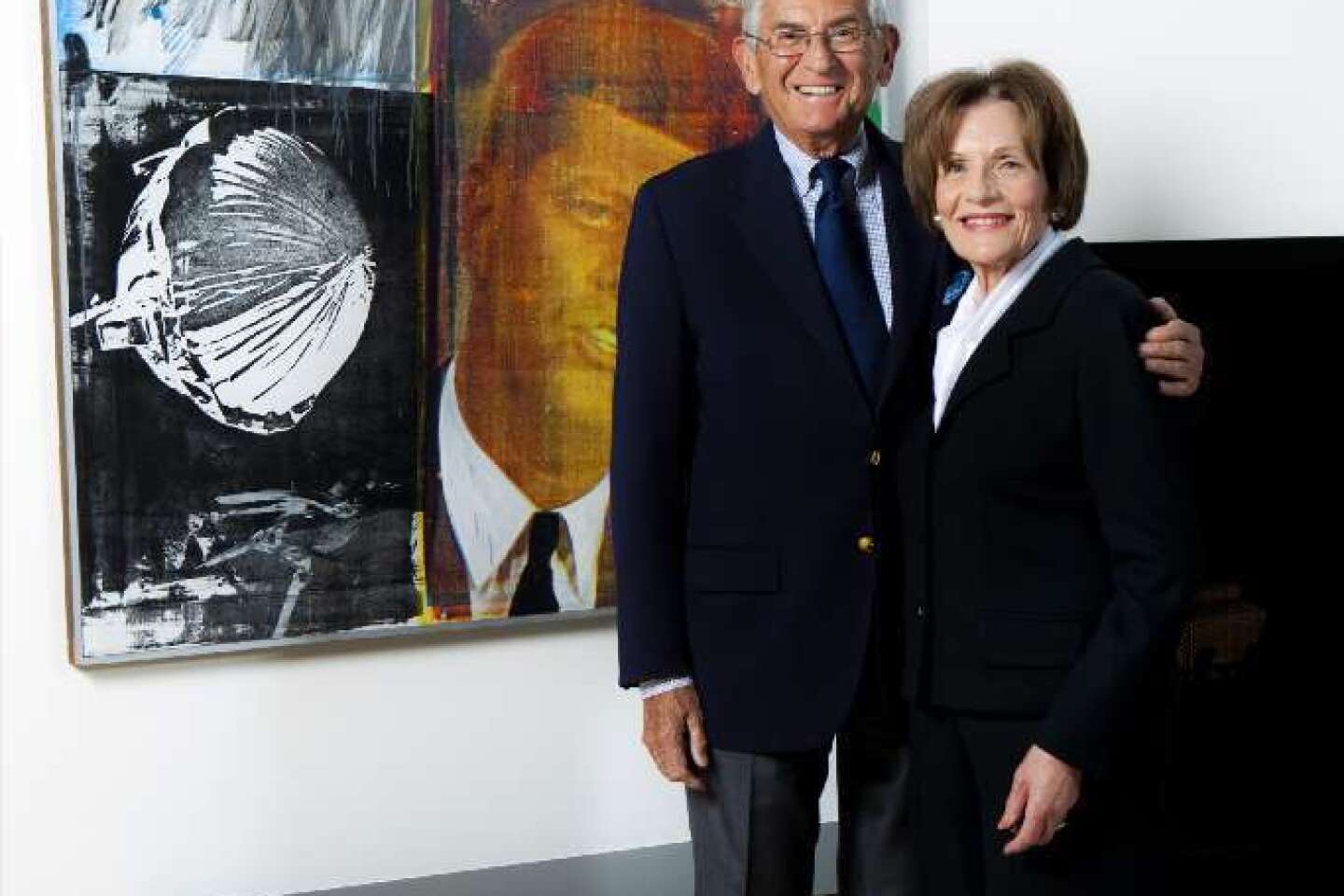Review: San Francisco Opera’s ‘Dolores Claiborne’ moody but conventional
- Share via
SAN FRANCISCO — A Stephen King opera had to happen. Many of his 56 novels have been made into movies and have spent time on bestseller lists, making King a king of pop culture accessibility — just what the opera world lusts after these days.
Moreover, Maine’s master of the supernatural is also fast rising in the ranks of literary respectability. On my way to see Tobias Picker’s new opera based on “Dolores Claiborne” at San Francisco Opera on Wednesday night, I stopped off at University Press Books in Berkeley. Prominently displayed amid the latest arcane studies in critical theory and scientific discovery was King’s new novel, “Doctor Sleep.”
Samuel Beckett should be so lucky. The four volumes of his collected works newly issued in paperback were hidden behind the sequel to “The Shining.”
CRITICS’ PICKS: What to watch, where to go, what to eat
Picker’s “Dolores Claiborne” is, however, not very King-like. The 1992 novel is one of the novelist’s rare forays into realistic fiction, but King himself has had nothing to do with the opera and has demonstrated little interest in it. He approved Picker’s theatrical approach and signed over the rights for $1, but he did not attend the premiere last week.
Nor has King been magic at the box office. The performance Wednesday was the third of six, and the War Memorial Opera House was not full, despite the ready approachability of the work.
Poet J.D. McClatchy’s libretto gives workable theatrical shape to a novel written as a single 300-page monologue. Picker’s score, the best of his five operas, is imaginatively moody. James Robinson’s production, with effective projections as backdrops, never confuses the issue. The singers are outstanding.
CHEAT SHEET: Fall arts preview
In a word, Picker’s “Dolores Claiborne” works as conventional opera, and that seems to be its problem. King’s novel is not conventional. It’s the salty testimony during an all-night police interrogation of a 65-year-old Maine housekeeper accused of murdering wealthy socialite Vera Donovan, her employer. Dolores does admit to having killed her abusive husband years many years earlier and getting away with it. But she is innocent of pushing the doddering Vera down the stairs.
What is fascinating about King’s novel is both Dolores’ feisty language and her revelations about the insular life on a small island off Maine.
McClatchy’s libretto is a series of short scenes plainly reenacting the events. The flavor of Claiborne’s fanciful language is replaced by curiously plain narrative exposition.
ART: Can you guess the high price?
In the process, King’s monodrama becomes an operatic melodrama exploring the angst of three women. The long-suffering Dolores murders her husband for sexually abusing their daughter Selena. Vera and Selena, who eventually becomes a Boston lawyer, are emotional basket cases. With her seeming street smarts, Dolores tries to save them, and saves no one.
Picker has called “Dolores” an American “Tosca,” and he has limned Puccini for veristic melodrama before in such operas as “An American Tragedy” and “Thérèse Raquin.” He even turned “Fantastic Mr. Fox,” premiered by Los Angeles Opera in 1998, into a kind of animal kingdom melodrama.
Sure enough in “Dolores,” the three women pour out unrelievable angst in rich arias. All are victims of men. In particular, Dolores’ husband, Joe, is a pig. The vocal writing is effective, if nothing new.
PHOTOS: Arts and culture in pictures by The Times
Soprano Patricia Racette, who learned the demanding title role on short notice when Dolora Zajick developed knee problems, proves commanding in a gloomy sort of way. Mezzo-soprano Elizabeth Futral gives Vera a pomp as amusing as it is ultimately sad.
The young soprano Susannah Biller offers a richly complex portrait of Selena as confused teenager subject to her father’s groping and as confused 40-year-old lawyer trying to make it in a man’s world. The men — baritone Wayne Tigges as Joe and tenor Greg Fedderly as the detective — are convincingly threatening.
These are not characters able to rise above claustrophobic soap opera territory. They remain victims of the treadmill atmosphere produced by small-town Maine.
It is in Picker’s writing for the orchestra, vividly conducted by George Manahan, where that treadmill takes on a life of its own. The bass instruments growl like an angry, impotent drunk. The high strings whistle like a mean-spirited wind. Rippling inner voices become ineffably haunting sounds.
The most original aspect of Picker’s opera is that he may have found a supernatural core to “Dolores Claiborne” after all.
More to Read
The biggest entertainment stories
Get our big stories about Hollywood, film, television, music, arts, culture and more right in your inbox as soon as they publish.
You may occasionally receive promotional content from the Los Angeles Times.
